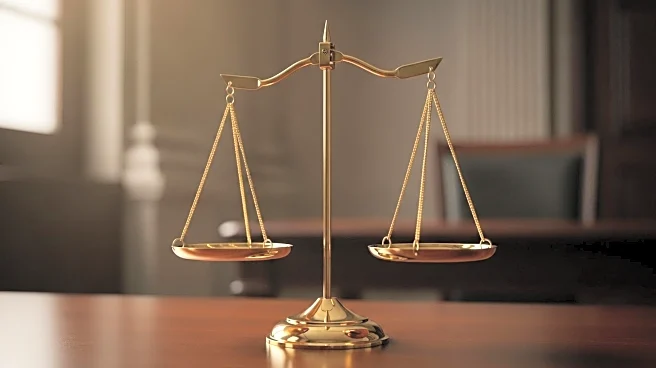What's Happening?
Former FBI Director James Comey appeared in federal court in Alexandria, Virginia, where he pleaded not guilty to charges of lying to Congress and obstruction of justice. The charges stem from his 2020 testimony before the Senate Judiciary Committee regarding the investigation into President Trump's 2016 campaign and alleged Russian collusion. Comey, represented by his lawyer Patrick Fitzgerald, denied the allegations and expressed eagerness for a speedy trial. The prosecution, led by Nathaniel Lemons, cited a large amount of evidence, prompting a slight delay in the trial schedule. The case is notable as it marks the first prosecution by the Justice Department against one of President Trump's political adversaries.
Why It's Important?
The case against James Comey is significant as it highlights the ongoing political tensions and legal battles involving figures from the Trump administration. The prosecution of Comey, a former FBI director, underscores the Justice Department's willingness to pursue high-profile cases against individuals perceived as political enemies of President Trump. The outcome of this trial could have implications for the credibility and independence of the Justice Department, as well as for Comey's legacy. If convicted, Comey faces up to five years in prison, which would be a substantial development in the political landscape.
What's Next?
The trial is set to begin on January 5, 2026, with both the defense and prosecution preparing for a complex legal battle. Comey's defense team plans to file motions to dismiss the case on grounds of vindictive prosecution and unlawful appointment of the prosecutor. The trial will likely attract significant media attention and public scrutiny, given the political implications and the involvement of high-profile figures. The Justice Department's handling of the case and the legal strategies employed by both sides will be closely watched.
Beyond the Headlines
The case against Comey raises questions about the ethical and legal dimensions of political prosecutions. The appointment of Lindsey Halligan, a Trump loyalist, as the U.S. attorney for the Eastern District of Virginia, has sparked concerns about the impartiality of the prosecution. The trial could set precedents for how political figures are prosecuted and the role of the Justice Department in politically charged cases. Additionally, the case may influence public perceptions of the FBI and its former director, as well as the broader political climate in the U.S.









